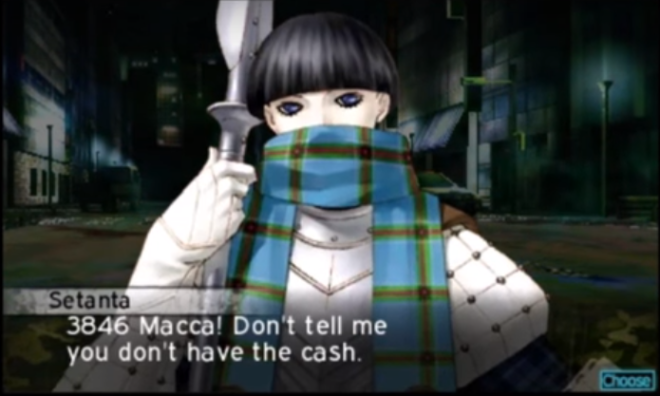Shin Megami Tensei IV: Apocalypse
Overview -
Become a godslayer and return to the world of 'Shin Megami Tensei IV' with 'Apocalypse' (aka 'Final' in Japan). Set part of the way through the previous game, players are cast as Nanashi, a boy living as a demon hunter in Tokyo who gets killed on what should be a routine mission. Brought back to life by a mysterious deity, Nanashi will either become a pawn in a much larger game, or take back the world for humanity.
Video Review

'SMTIVA', like its predecessor, feels fairly ambitious in what it tries to accomplish visually, and does a good job of bringing a ruined Tokyo to life. The city looks suitably grimy, while the towns, all of which are repurposed subways, are surprisingly visually distinct. Dungeons are varied and pack in a surprising amount of detail, and Nanashi's character model as well as the huge amount of alternate outfits available for him, all look great. The game has to compromise on this in a few places, and demons are exclusively just 2D sprites in combat, which tend to look somewhat blurry. The art direction and fantastic enemy design mitigates this, but it can definitely feel like a game at odds with its hardware.
Audio Review

'SMTIV' has one of my favorite soundtracks of all time, and while 'Apocalypse' reuses some tracks, the new music here is incredible. It doesn't just suit the dark tone of the game perfectly, but it also packs in some catchy, insanely memorable beats. The battle themes are some of my favorite in recent years, and the remixes of tracks from the previous game are lovely. Additionally, the entire main story is fully voiced in English by a surprisingly good cast, outside of Dagda, whose voice actor puts on an awful sounding Irish accent throughout that occasionally felt distracting.
Final Thoughts

One of the best games on the 3DS has been bested with 'Shin Megami Tensei IV: Apocalypse ', and the result is an exciting, smart, and amazingly complex RPG. I can't think of a game I've enjoyed this much in 2016, and I'm already looking forward to diving back into this again in the near future. While it's worth playing its predecessor before diving into this, Atlus has done a good job of ensuring that the game stands on its own perfectly, making it accessible even to series newcomers. For those who like JRPGs in the slightest, 'SMTIVA' is absolutely worth playing.












